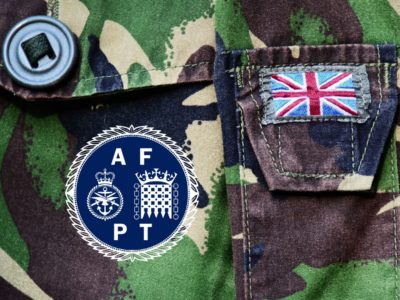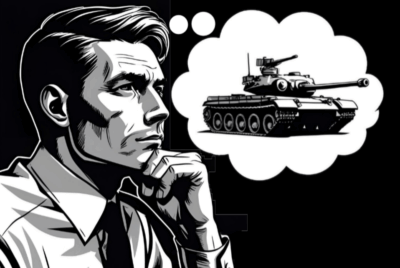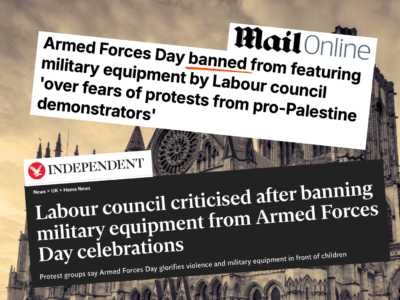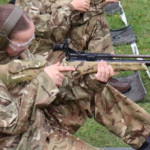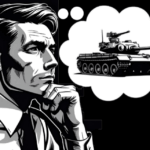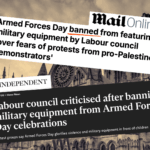Hope in a time of luminous insanity
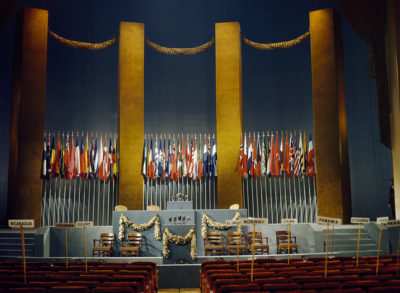
I read a sentence today in JK Galbraith’s history of the 1929 stock market crash that seemed to capture something of our current moment. He wrote:
‘Great drama joined in those months with a luminous insanity.’
Writing in the week of VE Day 2025 – the 80th anniversary of the defeat of 20th century fascism in Europe – is an odd feeling. Far away from Halifax bombers, royal pomp and nostalgic street parties to commemorate the end of a devastating war, another outbreak of mass human conflict threatens. There is great drama, and it seems like only a matter of time before it cross-contaminates with a luminous insanity. Or perhaps it already has.
In Ukraine, there is grinding trench warfare which wouldn’t look out of place in 1916. Israel, with material and political support from the UK and others, has just announced the latest phase of its genocidal assault on Gaza. And now (nuclear-armed) India has bombed numerous targets in (nuclear-armed) Pakistan and Kashmir. For those of us who closely observe war and militarism, there is a sensation of being unseen and unheard; a feeling that the world is ploughing towards a third global conflagration despite everything we’ve said and done, often over long, thankless decades.
A series of (very West-centric) YouGov polls meant to clarify the public mood about wars past and future were published recently. One reveals that many Americans and Europeans feel a world war is coming:
Eight decades after the last great war, the prospect of another global conflict haunts the continent once again, with a new YouGov survey conducted in Britain, France, Germany, Italy and Spain showing that between 41% and 55% in each country think that another world war is likely to occur within the next 5-10 years. Across the Atlantic in the USA, 45% of Americans share this view.
Majorities also believe such a war would exceed previous world wars in casualties and involve the use of nuclear arms. But also that their countries are ill-prepared.
Large majorities of Europeans and Americans also believe Russia is the primary threat. Lesser, but still substantial numbers of Europeans, believe Donald Trump (with his recent belligerent language around Canada, Panama and Greenland) is also a threat to global peace.
Of course it is impossible to know what people are thinking when they vote in polls, but the figures do disconcert.
A coming war?
The sense of impending doom might be compounded by massive spikes in defence funding globally. Our colleagues at the Global Campaign on Military Spending (GCOMs-UK) recently published an analysis of military spending based on new data compiled by the Stockholm International of Peace Research Institute (SIPRI):
New data on global military spending – published today – shows that last year it grew by 9.4% above inflation to a massive $2.718 trillion – the highest level since the end of the Cold War. The UK’s percentage increase – 2.8% – was lower than some of the largest NATO states including the USA, France and Canada. But it left the UK figure at $81.8bn.
One figure which particularly stands out in light of YouGov respondents’ feeling that Russia is the major threat is that NATO spending continues to outstrip its rival:
Military spending by NATO states continues to dwarf Russian expenditure. Despite an increase of 38% by Moscow, total NATO spending is still almost ten times the size at $1506bn.
This massive figure is also a massive 55% of global military expenditure. Doubtless supporters of the increase would point to increased global instability, as in Ukraine, to justify the rises, though such a view would suggests a very narrow formulation of what security actually is. Spending on war in the UK substantially outstrips its national spending on energy and the environment. As GCOMS says:
The new SIPRI data signals that the governments of most of the wealthiest nations in the world – including the UK – continue to prioritise military spending at the expense of measures that bring real security – such as tackling poverty, inequality and the multiple environmental crises.
It must at least be worth asking how we got here.
Reflecting across time
Our friends at Rethinking Security and the Quaker organisation, the Northern Friends Peace Board, (NFPB) have both published pieces reflecting on the period of immense turmoil and destruction as a result, and in the aftermath of, the second world war – and now.
Rethinking Security points out that as the war ended 80 years ago, the victors ‘committed themselves to establishing a more effective system of international peace and security, institutionalising dialogue and cooperation’ but that ‘current leaders are retreating from the ideals and commitments to these institutions and rules’.
However, listing institutions like the IMF and USAID in the context of Trump’s increasing isolationism, they note that the order ushered in after the war kept in place numerous imperial and colonial contradictions, which have since kept many of us up at night:
These systems and institutions were built in a world order dominated by nations of the global north that have continued to wield power and privilege within that order. It says something about that privilege that many in the global north are only now worried about war, weapons and an international system that is taking a battering.
NFPB have dug back into their archives to find what Quaker activists were saying about peace in 1945 and 1946. In a piece about ‘echoes and resonances’ they found an 80-year old lament that the war was not ended earlier:
It is now widely recognised that in Europe the policy of Unconditional Surrender was responsible for a considerable lengthening of the war.
The result, the NFPB of 1945 argued, was to not only ‘increase unnecessarily the total material devastation, but to bring about a complete social and spiritual collapse’. They foresaw an ‘immense task’ in bringing the public ‘to realise that war-mindedness can never bring the peace they long for’. They hoped that the United Nations, then in the process of being founded, ‘does not act as a cloak for Imperialism’, fearing that this this ‘new world organisation’ was ‘rooted in power, expressed particularly in the determination of the Great Powers to maintain vast armaments to impose their united will on the rest of the world’.
It seems that this came true, looking at the military spending figures and the powerlessness of international institutions, including the UN, in the face of Israel’s assault on Gaza.
Calibrating hope
Just a few weeks ago I spoke to Matthew Hoh, who is the first guest in our forthcoming season of the Warrior Nation podcast. The series will investigate the future of war. A former US State Department whistleblower, Matt served in the US Marines in Iraq as a counter-insurgency expert. On the topic of hope, he seemed to think the term is used rather too lavishly and lightly in anti-war circles. This position, he told me, was informed by a number of experiences, not least a recent trip to the occupied West Bank. But it is also informed by his time in Iraq working as what he described as – to paraphrase – a purveyor of false hope, telling visiting politicians and generals what they wanted to hear about the ‘progress’ of a war which produced none.
This may sound pessimistic. And I think it was, but in a healthy way. I read Matt’s point, which you can hear at length soon, as a call to calibrate hope intelligently. And to do so while looking into the face of all the things we had both seen as former soldiers-turned-activists, and in the shadow of the growing militarism I’ve described here. That part of our discussion immediately summoned to mind that old quote by Antonio Gramsci:
‘I’m a pessimist because of intelligence, but an optimist because of will’.
And in a time where darkness seems very close, learning how to balance hope and pessimism might be our best option. If nothing else it might offset a little of the ‘luminous insanity’ encapsulated in the twee commemorations of the end of one cataclysmic war against the unacknowledged backdrop of a potential future one.
See more: military in society, war commemoration, United Nations, arms trade, defence & foreign policy
Like what you read?
> Sign up for our newsletter or blog notifications
> Support our work – from just £2 a month

